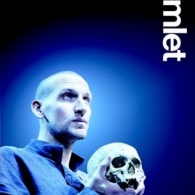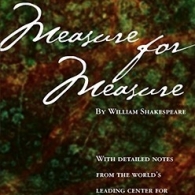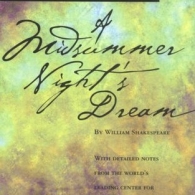William Shakespeare (April 26 1564, Stratford-upon-Avon, England - April 23 1616) was an English poet and playwright, often considered the greatest English-speaking writer and one of the best dramatists in the world. Often referred to as the national poet of England. The works that have reached us, including some that were written jointly with other authors, consist of 38 plays, 154 sonnets, four poems and 3 Epitaphs. Shakespeare plays translated into all major languages and put more often than the works of other playwrights.
William Shakespeare was born on April 23, 1564, in the city of Stratford, located on the River Avon, which now houses the Shakespeare Memorial Theater. This is the great English playwright and poet of the Renaissance. When the father of the future poet, a well-to-do merchant in those days, went bankrupt, fifteen-year-old William was forced to earn his living on his own. At 18 he married Anne Hathaway, in a marriage with which he had three children: a daughter, Susanna, and twins, Hamnet and Judith. Shakespeare's career began between 1585 and 1592 when he moved to London. He began working in the theater.
Shakespeare began to get small roles in the theater, later called the Globus, whose performances were really successful in London. William did not become an actor, but his statements about acting, and most importantly, his excellent mastery in the construction of plays, testifies to an amazing knowledge of the laws of the scenes. But Shakespeare wrote not only plays. His sonnets captivated contemporaries and continue to captivate the descendants with the power of feelings, depth of thought, the grace of form. Readers can particularly appreciate Shakespeare's sonnets, thanks to excellent translations. But the main thing for him, the passion of his life was the work of the playwright, the creation of plays. Huge mastery of William Shakespeare as a playwright, the language of his tragedies is distinguished by extraordinary richness and beauty. His dramaturgy takes pride of place in the repertoire of theaters around the world.
Jubilant joy of life, glorification of a healthy, strong, courageous, brightly feeling, bravely thinking person - these are the main in the first plays of Shakespeare: The Taming of the Shrew, The Comedy of Errors, A Midsummer Night's Dream, Much Ado About Nothing, Twelfth Night , written in 1593 -1600. They expressed an important idea for the Renaissance: a person should be judged not by dress, not by knowledge, not by class and wealth, but by his behavior and personal qualities.
But the noble humanistic ideas of the Renaissance were not destined to be defeated in that cruel era. Shakespeare feels it bitterly. In his next plays, the ideas of the Renaissance are also expressed, but the colors of the pieces become darker. He depicts the clash of these wonderful ideas with the harsh reality. The theme of the death of heroes, especially those dear to him, begins to sound in the works of William Shakespeare. Young Romeo and Juliet are the heroes of the first great tragedy of Shakespeare (1594). They love each other ardently. Their love comes up against an insurmountable obstacle - the old enmity of their families. As we all already know, Romeo and Juliet perish in an unequal duel with age-old prejudices, with the bloody and meaningless laws. But in their love, not resigned to the prejudices of antiquity, is a high moral victory.
Williams Shakespeare's plays were on the stage of the London Theater "Globus". Shakespeare's contemporaries were convinced that no one had composed this, but only retold and showed some old story that everyone knew. In fact, Shakespeare almost did not compose a single play. He borrowed not only plots, but also characters, even the text, which he often did not invent, but only reworked. Actually, since it became known, it became clear how a certain provincial dropout managed to master enough material for an entire college of minds.
After staging The Tragedy of Julius Caesar from 1601 to 1608, Shakespeare created his greatest tragedies: Hamlet, King Lear, Macbeth and Othello. The task of restoring justice in Hamlet is not one Hamlet, but two more young people: Lohert and Fortinbras. Shakespeare, therefore, in relief, relatively denotes a problem. Danish prince Hamlet bitterly mourns his dead father. But suddenly he finds out: he did not die, he was killed. The murderer - the brother of the murdered, the uncle of Hamlet - not only inherited the throne of the late King but also married his widow - Hamlet's mother. The tragedy depicts how Hamlet at the beginning denounces the hypocrisy of the crowned criminal, and then revenges him for the death of his father. But these are only external events of the play. Tragedy draws the complex and difficult thoughts of a young man about the nature of evil, about the vicious royal court, about lies, lurking in the palace walls, about diseases that affect the century. Hamlet’s loneliness is the loneliness of a man who has outstripped his time, who is in a tragic discord with him and therefore perishes.
In the last years of Shakespeare's work (1608 - 1612), his plays acquire a different character. They are removed from real life. They sound fabulous, fantastic motifs. But in such plays, as The Winter's Tale and The Tempest Shakespeare condemns despotism and iniquity, rises to the defense of his dear ideas, glorifies the power of love, faith and the best motivations of man, asserts the natural equality of all people.
All Shakespeare's plays were once on stage, twenty of them were printed during his lifetime, and thirty-six were included in the collection that is called First Folio (1623) composed by the actors after his death. The creativity of William Shakespeare is one of the peaks of the artistic culture of the Renaissance.
In 1612, Shakespeare wrote his last play, The Tempest. Soon he left the theater. Perhaps Shakespeare had experienced disappointment in the English theater, which was moving away from the great path along which he led it. Or maybe, in the years of silence, he hatched the intentions of his brilliant works, which were never destined to appear. Shakespeare died in 1616, the day he was fifty-two years old. He was buried in the center of his native Stratford. The admirers of his talent come from all over the world to worship the grave of the great playwright, to visit the house where he lived, to watch his plays at the Stratford Theater, where only Shakespeare plays are staged.





















